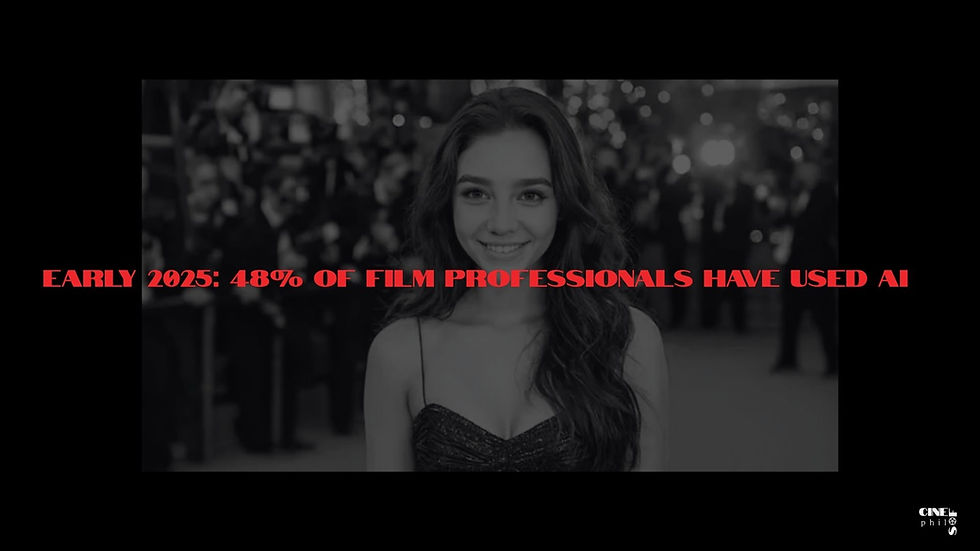Pabllo Vittar: The Queen Who Dares, the Heir Who Cares
- Sofia R. Willcox

- Aug 5, 2024
- 3 min read
Updated: Aug 7, 2024

Recently, The New York Times declared Pabllo Vittar the heir to RuPaul’s Drag Race, a popular TV show that highlights drag queens competing in various challenges. Ironically, the show sparked his interest in the art of drag and recognized its importance in bringing visibility to drag culture in the mainstream. In this piece, you will discover why this Brazilian drag queen not only deserves this title but also represents the voice of the future.
Pabllo Vittar hails from Maranhão, a state in Brazil's Northeast, a region known for its rich cultural heritage but also for facing systemic prejudice. Despite its significant contributions to music and literature, Northeasterners often encounter negative stereotypes and socio-economic marginalization. Media representations frequently rely on outdated and exaggerated caricatures, perpetuating harmful biases and failing to recognize the region's modernization and achievements. The practice of "Brazilian yellowface," where non-Northeastern performers use makeup to create exaggerated versions of Northeastern characters, is a clear example of this prejudice, reducing complex cultural identities to simplistic and often derogatory portrayals.
This regional influence can be seen in Vittar’s sound, which incorporates local rhythms like tecnomelody, forró, arrocha, and Carioca funk, fused with pop and electronic music. She was exposed to a melting pot of influences. From an early age, taking classic ballet and jazz dance classes. In adolescence, she joined the choir of a Presbyterian Church, sang at parties, and performed on a regional program, covering various artists. Her mother was a strong musical influence, introducing him to Aretha Franklin, Donna Summer, Whitney Houston, Tina Turner, Gilberto Gil, Ney Matogrosso, Elis Regina, Alcione, and Caetano Veloso. As well as contemporary artists like Beyoncé, Anahi, Rihanna, and Mylla Carvalho.
Pabllo Vittar is one of three children raised by a single mother. According to recent statistics, there are over 11 million single mothers in Brazil, out of a population of 214 million.
During her school years, Pabllo was a victim of bullying due to his high-pitched voice and delicate gestures. Today, he is a gay icon and an emblem of gender fluidity. She uses her platform to promote self-esteem and affirmation through her lyrics and advocates for LGBT+ rights. The "Pabllo Vittar effect" refers to a collective of drag queens helping to change the acceptance of the LGBTQ community in Brazil, using music and performance as their means of expression. She is a strong symbol of resistance in a country that leads in violence against the LGBTQ community. She does honour to the protagonists in the 1969 Stonewall Riots, which was the kickstart of the gay movement globally. She also breaks social bubbles within the music industry, amalgamating fans from various genres and generations through her participation in both traditional Brazilian programs and contemporary platforms. Not only these, but also the geographical borders with a strong fan base in Brazil since her debut in the Carnaval 2017 and now conquering the world.
Drag queens have constantly experienced historical erasure, a result of structural prejudice that even exists within the LGBT community itself. The art of drag is often used as a humorous backdrop for stories about the gay experience and its conflicts with straight culture, or simply as a comic relief. This perception undermines the seriousness and worth of drag as an art form. Instead of valuing its plurality in arts—such as singing, dancing, acting, dressing, creating, writing, and directing—it is often reduced or omitted.
Drag challenges expectations, social constructs, gender norms, and identities. For instance, in Berlin, Germany, between the end of the 19th century and the 1930s, there were numerous cross-dressing balls. At these balls, the dresses were so heavy that they had to be literally dragged across the floor. This was where the term “drag” came from. Though, cross-dressing, has been practiced throughout much of recorded history, in many societies, and for many reasons.
Pabllo Vittar responds to hate and erasure with high numbers in the charts and media, not only on traditional music platforms but also with cameo appearances on The Sims 4. She opens unthinkable doors for those facing darkness and struggle in the margins of society. Vittar's present voice is a mix of diversity and plural causes, and his future is destined to shine brightly, saving seats for opportunities she has opened.

This piece is also available on Outside Left: https://www.outsideleft.com/main.php?updateID=3142




Comments